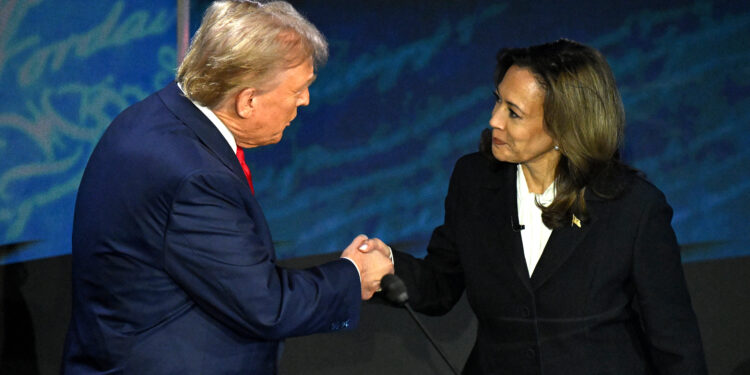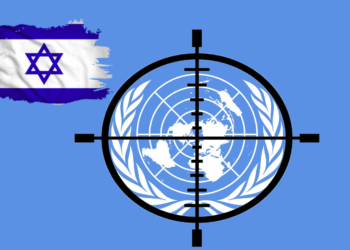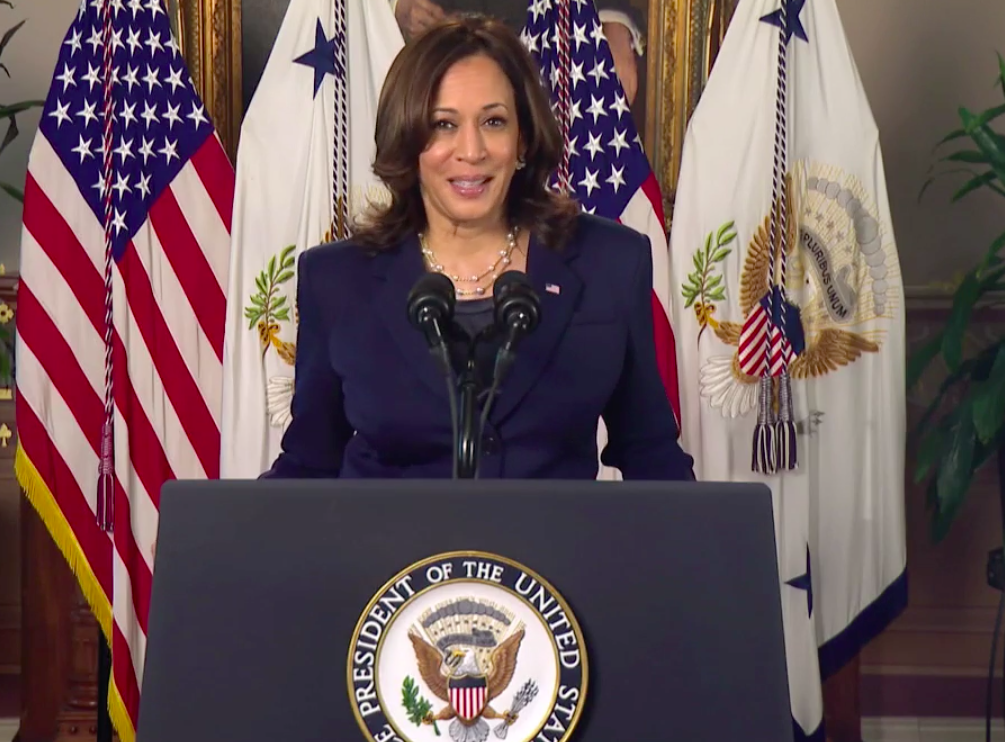Brussels – The race for the US presidential election has now reached the last mile. The Nov. 5 fate day is getting closer and closer. In the European Union, apprehension is growing by the day over the outcome of what is perhaps the most significant vote of this unprecedented election year in global history. In Brussels, the victory of Donald Trump is seen as a danger to be averted at all costs. I. If Kamala Harris were elected, all the twenty-seven chancelleries (or nearly all) would sigh in relief. On almost every issue of European concern, the priorities of the former Republican president and her Democratic challenger stand in substantial opposition. So what might be the implications for Europe (and especially the EU) in the event of a victory for either contender?
Foreign Policy
Undoubtedly, one of the areas where sidereal distances are measured between the two candidates is that of foreign policy. Regarding the war in Ukraine, for example, Trump has repeatedly said that he intends, in his own way, to end the conflict as soon as possible. According to rumours, the New York-based tycoon wants to propose to Ukrainian President Volodymyr Zelensky to grant Russia at least part of the occupied regions, probably some areas of the Donbas and Crimea, in exchange for a cessation of hostilities. If Washington interrupted military and financial support to Kyiv overnight, it would be difficult for the Europeans to continue defending the former Soviet republic.
The effect that the US disengagement from Ukraine would have on the security of the Old Continent—in which Trump does not seem to be particularly interested—is complex to calculate but would undoubtedly be highly negative for the transatlantic allies, who have only recently (even in the face of the prospect of a second term in office for the former president) begun to take more seriously the issue of the so-called strategic autonomy.
A Harris administration would instead place itself on a line of continuity with the choices made by outgoing President Joe Biden: Congress permitting, support for Ukraine would be guaranteed, at least in the medium term. The incumbent democratic vice president has explicitly criticized as “surrendering” the rival’s positions, rejecting any bilateral negotiations with Moscow that exclude Kyiv.
Regarding the Middle East chessboard, the differences between Harris and Trump may be more nuanced, given the traditional solidity of the alliance between Washington and Tel Aviv. However, a White House led by the former president would likely grant the Jewish state virtually unconditional support (it should be recalled that Trump was the architect of the so-called Abraham Agreements of 2020 for the normalization of diplomatic relations in the region), ending up exacerbating, even more, the divisions among the Twenty-Seven over the ongoing regional crisis.
The Democratic challenger may try to corner (so to speak) Israeli PM Benjamin Netanyahu, even though, by now, the latter appears more a loose cannon (willing to strike even UN blue helmets) than a reliable partner. However, the Middle East is too important a piece of US foreign policy for any president to abandon the historic ally to its fate.
The future of NATO
The Ukraine war is also intertwined with the future of NATO. For some time now, Trump has been denouncing what he calls an insufficient commitment from the Old Continent’s allies (some of whom have not yet met the 2 per cent of GDP target for military spending) and has polemically called on Russian President Vladimir Putin to invade European countries that do not do their part. The Congress does not seem to rest easy soundly either, as it has recently approved a law putting in black and white that a withdrawal from the Alliance needs parliamentary approval, not just a presidential decree.
In deeds, however, if Trump wanted to reduce US participation in NATO, he would not need to abandon it: it would simply be enough, should the infamous Article 5 of the North Atlantic Charter (whereby, in the event of an attack on one member state, all others should “take such measures as they deem necessary to protect the attacked ally”) be activated, not providing a military response but simply diplomatic or civilian support. For months, at NATO headquarters in Brussels, the upper echelons of the other 31 member countries have been devising plans on how to keep the organization (whose leadership recently passed into the hands of former Dutch premier Mark Rutte) functional even in the event of a re-election of the Republican candidate.
Business Policy
On the other hand, trade policy is a matter in which the differences between Harris and Trump may not be as marked as people believe. During his first term in office, the latter blindsided his European partners with an agenda (eloquently dubbed America first) of ferocious protectionism, imposing high tariffs on imports from abroad and undermining the underlying principle of international trade, namely open markets.
If, with China, there has been a full-blown duty war, the Twenty-Seven have not quietly experienced the Trump presidency either, starting with Germany (which survives on exports). The Republican candidate recently aired the idea of reintroducing 10 per cent duties on all foreign products entering the US, causing panic across the Atlantic. Another technique that the former president might adopt is to hit with targeted duties only certain types of goods, thus creating a dynamic of rivalry and internal competition in Europe, according to the old tactic of divide et impera.
On the other hand, a Democratic presidency would mean maintaining normal trade relations with Europe and the rest of the world, and Harris’s choices would likely be in continuity with those of her predecessor. Biden, building on the legacy of the Trump era, expanded the arsenal of economic weapons in an anti-Chinese capacity and has stimulated domestic production with the Inflation Reduction Act (IRA), which was seen in Brussels as unfair competition—so much so that it served as the basis for reflections, including those in Mario Draghi‘s report, on reviving European competitiveness and the need for a common industrial strategy.
International Cooperation
The return of Trumpism, which is isolationist and protectionist in its essence (not only economic), would also have repercussions in the US’s international relations, producing inevitable spillover effects on the EU. It is no mystery that the former president has little respect for multilateralism, which he often paints more as a straitjacket than an opportunity.
One fundamental difference between the two candidates is precisely their approach toward allies and, more generally, international partners: For Harris, these are potentially crucial resources, while for Trump, they are deadweights or even bloodsuckers to get rid of. The same goes for multilateral institutions: the former, in continuity with its current leader, would aim to use and possibly reform them, while the latter prefers to ignore, if not directly eliminate, them.
To cite an issue where international cooperation is central, the tycoon is staunchly hostile to multilateral climate and environmental efforts. In 2020, he made the US withdraw from the 2015 Paris Agreement, which he called “a disaster,” and has promised that, if re-elected, he will continue on this path, cancelling the country’s re-entry into the treaty (wanted by Biden at the beginning of his presidency) and perhaps going even beyond.
On the energy side, a Trump 2.0 presidency would bring back (even more) energy supply through fossil fuels, countering the goals that Brussels set for itself with the Green Deal. Instead, Harris should focus more decisively on renewable sources, potentially involving Europe and other global partners in the path toward definitive phasing out of hydrocarbons.
English version by the Translation Service of Withub






